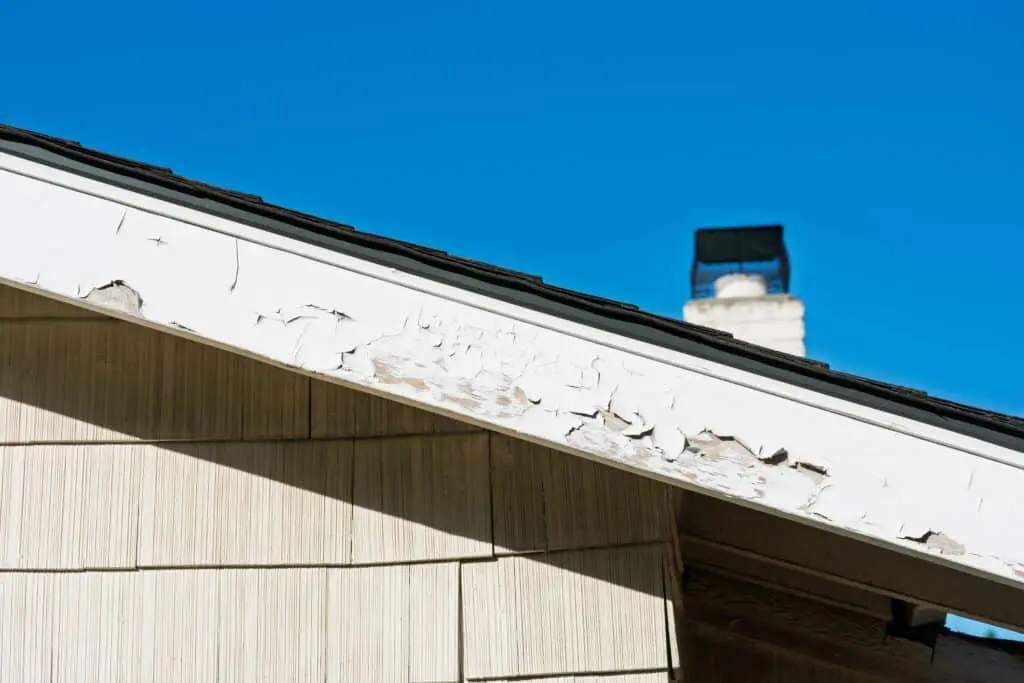Signs It’s Time to Repaint the Exterior of Your Home in Naples

In coastal cities like Naples, Florida, your home’s exterior faces year-round exposure to salt air, UV rays, humidity, and heavy rains. Even high-quality paint eventually gives in to the elements. What may seem like minor wear today could become a much bigger—and more expensive—issue if left unaddressed.
That’s why it’s important to recognize the early signs you need to repaint the exterior of your house. A professional paint job does more than improve curb appeal—it protects your home’s structure from long-term damage.
In this post, we’ll cover five key indicators that it’s time to call a painting expert and schedule your next exterior repaint—before small problems turn into costly repairs.
Fading or Discoloration from Sun Exposure
One of the earliest and most common signs you need to repaint the exterior of your house is noticeable fading, especially on the sunniest sides of your home.
In Naples, constant exposure to Florida’s strong UV rays can break down pigments in exterior paint, causing once-vibrant colors to appear dull, washed out, or uneven. South- and west-facing walls are often hit the hardest, with rooflines, trim, and shutters fading faster than other areas.
While fading might seem purely cosmetic, it’s actually a sign that your paint is losing its protective properties. When that UV-resistant layer breaks down, your siding or stucco becomes more vulnerable to cracking, moisture damage, and mold growth.
Professional painters recognize this as a warning flag. They’ll assess how deeply the color has faded, whether chalking is present, and recommend paint products designed for better UV resistance in coastal climates.
Peeling, Cracking, or Bubbling Paint
If you notice paint peeling away from the surface, cracking in uneven patterns, or forming unsightly bubbles, these aren’t just surface flaws—they’re serious signs you need to repaint the exterior of your house.
In coastal environments like Naples, high humidity and frequent rain can seep into compromised paint layers. Once moisture becomes trapped beneath the surface, it expands, causing paint to lift, bubble, or peel. Cracking can also occur when paint dries too quickly under intense heat or is applied without proper surface prep.
Here’s why this matters:
- Peeling and bubbling leave siding exposed to moisture, increasing the risk of rot, mold, and structural issues.
- Cracked paint allows water intrusion, especially around trim, soffits, and window frames.
- Uneven surfaces can’t be touched up effectively—they require sanding, sealing, and professional repainting.
A licensed painting contractor will identify the root cause of the damage and take steps to restore the surface, including moisture correction, pressure washing, and primer application. Ignoring these signs can lead to expensive repairs far beyond a simple repaint.
Visible Mold, Mildew, or Water Stains
In a humid climate like Naples, it’s not uncommon to see dark streaks or greenish patches appear on the exterior of a home, especially in shaded areas or spots where rainwater tends to collect. These are usually signs of mold, mildew, or water stains, and they shouldn’t be ignored.
While some homeowners may attempt to rinse or scrub the surface, the presence of recurring stains is one of the clearest signs you need to repaint the exterior of your house. It typically indicates that the paint has lost its protective seal, allowing moisture to penetrate and create a perfect environment for biological growth.
Here’s why this matters for your home’s long-term health:
- Mildew and mold degrade paint and underlying materials like stucco or wood over time
- Moisture damage can spread unseen behind walls or under eaves
- Stains may return quickly without repainting using mold-resistant coatings
Professional painters address this by first pressure washing and treating the surface, then applying high-performance paints designed to resist moisture and inhibit mildew regrowth, especially important in Florida’s coastal neighborhoods.
Chalking or Powdery Residue on Surfaces
If you run your hand across a painted surface and it comes away with a fine, white powder, that’s called chalking, and it’s one of the more overlooked but important signs you need to repaint the exterior of your house.
Chalking is a result of the paint’s binders breaking down under prolonged sun exposure. In sun-drenched areas like Naples, this natural degradation happens faster, especially with lower-quality paints or finishes not designed for UV resistance.
Here’s what chalking tells you:
- The protective film is deteriorating, leaving the surface exposed to the sun and rain
- Future coats won’t adhere properly without thorough cleaning and re-priming
- Curb appeal suffers, especially on darker colors that show residue more easily
A professional painter won’t just paint over chalking—they’ll remove it through pressure washing or surface preparation to ensure a proper bond between the new paint and the substrate. Ignoring chalking can lead to premature peeling and a shorter lifespan for your next paint job.
How Often Should You Repaint a House in Southwest Florida?
Even if your exterior paint looks “fine,” waiting too long between repainting cycles can lead to deeper damage that isn’t immediately visible. In Naples, where sun, salt, and storms are part of daily life, even high-quality paint jobs have a shorter lifespan than in other regions.
For most homes in Southwest Florida, professionals recommend repainting every 5 to 7 years, sometimes sooner depending on:
- Paint quality and color: Darker shades and lower-grade products fade and break down faster.
- Exposure level: Homes closer to the coast or with full-sun exposure will see more UV damage.
- Surface material: Wood siding typically needs more frequent attention than stucco or fiber cement.
- Previous prep and application: A job done without proper prep won’t last as long, even with premium paint.
A licensed painter can assess your home’s exterior and let you know whether it’s time to repaint, or if touch-ups or sealants will extend its life for another season. Preventive maintenance now can spare you from costly repairs down the road.
Don’t Wait for Paint to Fail Completely
Your home’s exterior is its first line of defense—and in Naples’ coastal climate, that defense needs to be maintained. Whether it’s fading, bubbling, mildew, or chalking, these are all signs you need to repaint the exterior of your house before bigger problems develop.
Professional painters don’t just apply a fresh coat—they evaluate the condition of your surfaces, identify any damage, and use products built to last in Florida’s challenging environment. Acting early means better protection, lower maintenance costs, and a home that looks polished year-round.
Not sure if your home is showing early signs of paint failure? Schedule a professional assessment to find out what your exterior needs, nd how to protect it moving forward.

